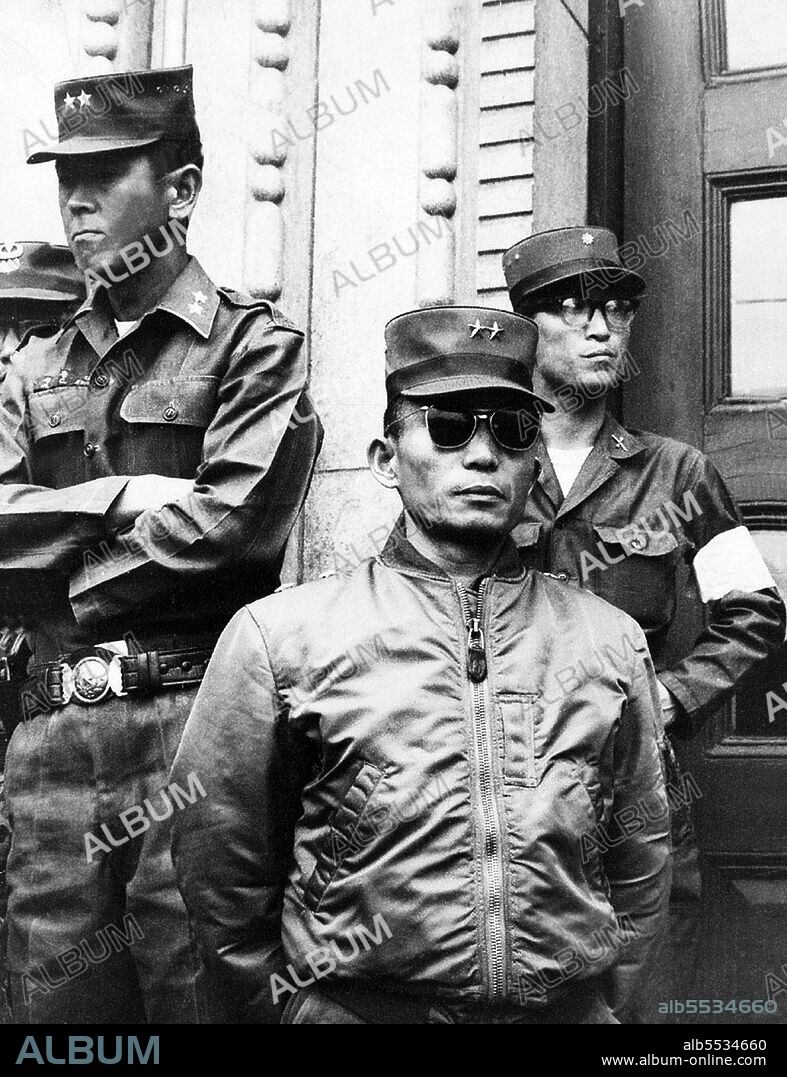alb5534660
Korea: Major General Park Chung-Hee (centre) at the time of the May 16th military coup, Seoul, May 16,1961

|
Zu einem anderen Lightbox hinzufügen |
|
Zu einem anderen Lightbox hinzufügen |



Haben Sie bereits ein Konto? Anmelden
Sie haben kein Konto? Registrieren
Dieses Bild kaufen

Titel:
Korea: Major General Park Chung-Hee (centre) at the time of the May 16th military coup, Seoul, May 16,1961
Untertitel:
Siehe automatische Übersetzung
The May 16 coup was a military coup d'état in South Korea in 1961, organized and carried out by Park Chung-hee and his allies who formed the Military Revolutionary Committee, nominally led by Army Chief of Staff Chang Do-yong after the latter's acquiescence on the day of the coup. The coup rendered powerless the democratically elected government of Yun Bo-seon and ended the Second Republic, installing a reformist military Supreme Council for National Reconstruction effectively led by Park, who took over as Chairman after General Chang's arrest in July. The coup was instrumental in bringing to power a new developmentalist elite and in laying the foundations for the rapid industrialization of South Korea under Park's leadership, but its legacy is controversial for the suppression of democracy and civil liberties it entailed, and the purges enacted in its wake.
Bildnachweis:
Album / Pictures From History/Universal Images Group
Freigaben (Releases):
Model: Nein - Eigentum: Nein
Rechtefragen?
Rechtefragen?
Bildgröße:
3689 x 4799 px | 50.7 MB
Druckgröße:
31.2 x 40.6 cm | 12.3 x 16.0 in (300 dpi)
Schlüsselwörter:
ARMEE • ARMEE: SOLDAT • ARMY • ASIEN • ASIEN, KONTINENT • DIKTATOR • GESCHICHTE • HEER • KONTINENT, ASIEN • KOREANISCH • MILITAER • MILITAR • MILITÄR • MILITÄRISCH • SOLD • SOLDAT • SOLDATEN • VOLKSARMIST • ZEITGESCHICHTE
 Pinterest
Pinterest Twitter
Twitter Facebook
Facebook Link kopieren
Link kopieren Email
Email
